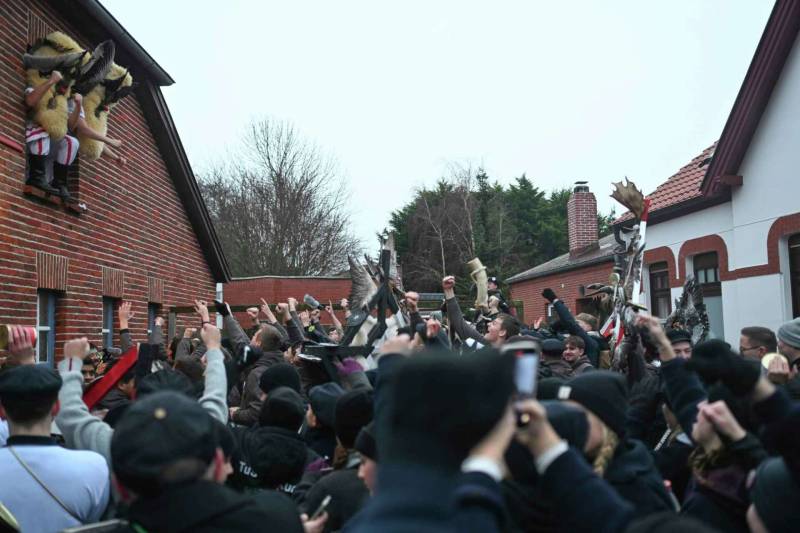German festival passes calmly after reports of beatings

Stay tuned with 24 News HD Android App

A German festival that drew controversy after reports of women being beaten with cow horns passed without incident this year when the practice was banned, police said Friday.
The annual Klaasohm festival on the North Sea island of Borkum "went off peacefully" on Thursday evening, local police chief Thomas Memering said.
Police said they "significantly increased" their presence at the festival after a TV documentary aired last week by the ARD broadcaster.
In the documentary, several women from the island had anonymously reported being assaulted during the festival, held every year on the eve of St Nicholas Day.
Footage showed women being held on the streets by "catchers" and beaten on the buttocks with cow horns by so-called Klaasohms -– young men wearing masks, sheepskins and bird feathers.
Ahead of this year's event, a spokesman for the festival told journalists it had decided to abolish the practice of beating.
Juergen Akkermann, the mayor of Borkum, apologised for not having cracked down on the tradition sooner.
Many people were still carrying cow horns this year but no beatings were observed, according to media reports.
Around 500 people took part in a parade through the centre of Borkum, police said.
"By the end of the Klaasohm parade around midnight, the police were not aware of any cases of bodily harm or possible assaults in connection with this year's festival," the police said.
"If criminal offences are reported afterwards, even in relation to past festivals, they will be prosecuted," Memering added.
"Traditions and customs offer no protection from criminal prosecution," he said.
The Klaasohm festival has been taking place on Borkum for around 200 years and has its origins in the traditions of whaling, according to local authorities.
One theory is that the custom of beating women evolved out of a desire to "re-establish the traditional hierarchy" at the end of the whaling season, Der Spiegel magazine said.
